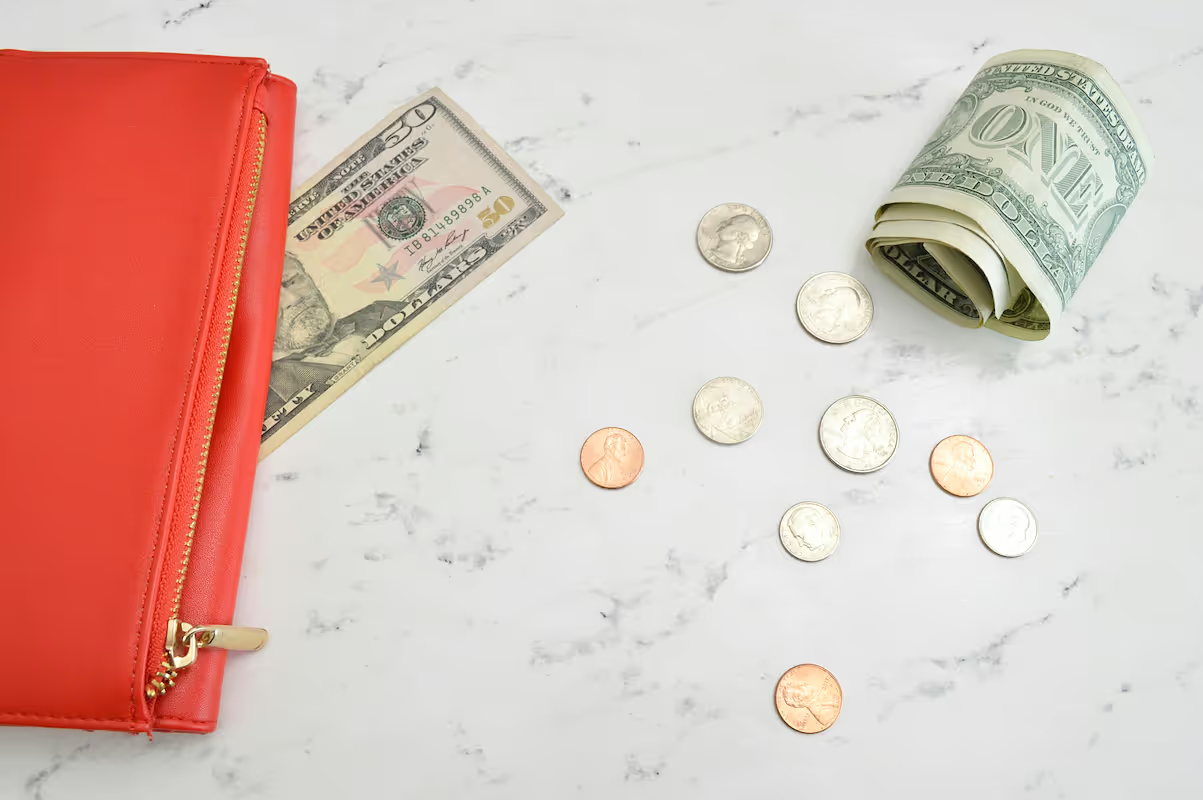
Kudos has partnered with CardRatings and Red Ventures for our coverage of credit card products. Kudos, CardRatings, and Red Ventures may receive a commission from card issuers. Kudos may receive commission from card issuers. Some of the card offers that appear on Kudos are from advertisers and may impact how and where card products appear on the site. Kudos tries to include as many card companies and offers as we are aware of, including offers from issuers that don't pay us, but we may not cover all card companies or all available card offers. You don't have to use our links, but we're grateful when you do!
Does Paying Off a Student Loan Affect Your Credit Score?
July 1, 2025


Quick Answers
Paying off a student loan can cause a temporary dip in your credit score by closing an established account, which shortens your average credit history length.
Your credit mix, a factor in your score, may become less diverse after eliminating an installment loan, potentially causing a slight, short-term reduction.
Despite a possible temporary drop, the long-term financial health benefits of being debt-free and having a positive payment history typically outweigh any minor score fluctuations.
What Does It Mean to Pay Off a Student Loan?
Paying off a student loan is the process of completely repaying the principal amount borrowed for educational expenses, along with all accrued interest. Once the final payment is processed, the loan balance reaches zero, and the account is officially closed. This action fulfills your contractual obligation to the lender and frees up your future income from this specific debt.
The closure of the loan account is reported to the major credit bureaus and can affect your credit score. Because it can change the average age of your accounts and your credit mix, you might see a temporary dip in your score. Over the long term, however, a history of successfully repaying a significant installment loan demonstrates financial responsibility to potential lenders.
How Paying Off a Student Loan Could Affect Your Credit Score
Paying off your student loan is a huge financial accomplishment. While it's a major positive step, closing this long-standing account can sometimes cause a temporary, unexpected dip in your credit score.
- Loan Account Closure: Once you make the final payment, your lender reports the account as paid and closed to the credit bureaus. This is the initial action that triggers potential changes.
- Shift in Credit Mix: Your credit score benefits from having a mix of credit types, such as installment loans and revolving credit. If the student loan was your only installment loan, closing it can reduce this diversity and slightly lower your score.
- Reduced Average Age of Credit: The length of your credit history is a significant factor. Student loans are often one of a borrower's oldest accounts. Closing an established account can lower the average age of your credit, which may negatively impact your score.
- The Score Dip: The combination of a less diverse credit mix and a lower average account age can result in a temporary drop in your credit score. This is typically a minor and short-lived fluctuation for those with an otherwise healthy credit profile.
- Long-Term Outlook: Your score will likely rebound as you continue to manage other credit responsibly. The long history of on-time payments from your student loan will remain on your report for up to 10 years, continuing to reflect positively on your creditworthiness.
How Much Will Paying Off a Student Loan Affect Your Credit Score?
Paying off your student loans is a major financial milestone, but its effect on your credit score can be complex. Here are a few key factors that determine how your score might change after that final payment.
- Credit Mix. Closing a student loan removes an installment loan from your credit profile. This can slightly lower your score if it was your only installment loan, as lenders prefer a mix of credit types.
- Age of Credit History. Student loans are often one of the oldest accounts on a credit report. Closing it can lower the average age of your accounts, which may cause a temporary dip in your score.
- Payment History. Your record of on-time payments will stay on your credit report for up to 10 years. This long-term positive history will continue to benefit your credit score long after the loan is paid off.
How You Can Avoid Paying Off a Student Loan Affecting Your Credit Score
Maintain Other Credit Lines
Paying off a student loan can shorten the average age of your credit history. To mitigate this, keep older credit card accounts or other loans open and in good standing. This demonstrates a long, responsible history of managing debt, which positively influences your credit score.
Diversify Your Credit Mix
If the student loan is your only installment loan, its closure can narrow your credit mix. Lenders like to see that you can responsibly manage different types of credit. Maintaining a mix, such as credit cards and other loans, can be beneficial for your score.
Focus on Long-Term Health
A slight, temporary dip in your credit score after paying off a loan is normal. The long-term benefits of being debt-free, like an improved debt-to-income ratio, often outweigh this minor fluctuation. Your score will likely recover with continued good financial habits.
Ways to Improve Your Credit Score
While improving your credit score requires consistent effort, it is always possible to boost your creditworthiness through positive financial habits. An expert guide suggests that with dedication, you can achieve a healthier credit profile over time.
- Set up automatic bill payments. This ensures you never miss a due date, which is crucial since payment history is the single most significant factor in your credit score calculation.
- Lower your credit utilization ratio. Aim to use less than 30% of your available credit, as this ratio is a major component of your score.
- Check your credit reports regularly. Monitoring your reports from all three major bureaus helps you spot and dispute errors or signs of identity theft.
- Become an authorized user. If you have a trusted friend or family member with a strong credit history, being added to their account can help you build your own credit.
- Diversify your credit mix. Lenders like to see that you can responsibly manage different types of credit, such as credit cards and installment loans.
- Limit hard inquiries. Applying for too much new credit in a short time can temporarily lower your score, so it's best to space out your applications.
The Bottom Line
Paying off a student loan can cause a temporary dip in your credit score. This is because closing the account can affect your credit mix and the average age of your accounts.
Frequently Asked Questions
Will paying off my student loan early hurt my credit score?
It can cause a temporary dip. Closing an older account may shorten your credit history length and reduce your credit mix, which are factors in your score.
How long do paid-off student loans stay on my credit report?
Student loans paid in good standing can remain on your credit report for up to 10 years, positively contributing to your credit history and payment record.
What happens to my credit if I miss a student loan payment?
Missing a payment can significantly lower your credit score. Lenders report delinquencies to credit bureaus, and this negative mark can stay on your report for seven years.

Supercharge Your Credit Cards
Experience smarter spending with Kudos and unlock more from your credit cards. Earn $20.00 when you sign up for Kudos with "GET20" and make an eligible Kudos Boost purchase.
Editorial Disclosure: Opinions expressed here are those of Kudos alone, not those of any bank, credit card issuer, hotel, airline, or other entity. This content has not been reviewed, approved or otherwise endorsed by any of the entities included within the post.





















.webp)
.webp)
.webp)
.webp)















